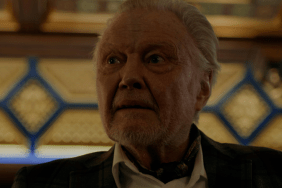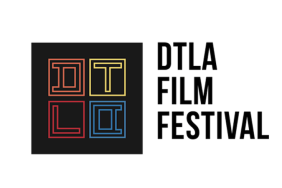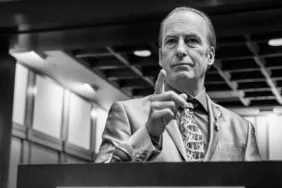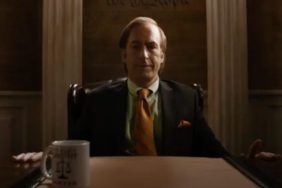The Third Murder: Japanese director Hirokazu Koreeda discusses his latest film
Japanese director, writer, producer and editor Hirokazu Koreeda (Nobody Knows, Still Walking) has come back at us with his latest court case drama The Third Murder, which premiered at the Toronto International Film Festival last week. The Third Murder is based around the story of Musumi (Koji Yakusho), a twice-convicted murderer who has been sent back into holding for confessing to a third murder of his former boss. Yet when interrogated, his story continues to change, leading his lawyer, Shigemori (Masaharu Fukuyama) to believe that he is lying. Koreeda was kind enough to take a few minutes out of his schedule to speak with us about his take on the Japanese government and judicial system.
ComingSoon.net: What was your motivation for writing The Third Murder?
Hirokazu Koreeda: So, I was talking to a friend, who is a lawyer, one day and in Japan the truth is that the court is not a place where the truth is pursued. The lawyer was saying, “yeah it’s kind of a problem that we are not pursuing to find out the truth of what’s happened.” So, I asked him “what was it that he did?” and he said, “we’re there to make adjustments to the conflict interest.” I mean, I don’t know if addressing the conflict of interest is more of a common way of thinking in the west, but many people in Japan, they believe that the court is the space in which the right thing is done and the truth is pursued. So, there was a gap between what the lawyer was telling me and how the Japanese public perceives it. With that as a backdrop, in which the courts, really, are just trying to say you’ve got a conflict of interest, how can we remedy that or adjust it or fix it or something like that. Going from that and saying, “okay, what would happen if a lawyer really started wanting to know the truth?”
CS: Going on that theme, knowing that Musumi had already been twice convicted of murder. When they felt that he was lying about the third murder, the lawyer seemed to show him more sympathy and why did you find that that was necessary to do?
Koreeda: I don’t think it is so much sympathy, but what I feel happens is that he started seeing him more and more as a human and his perspective as a human. What is it that is motivating him and as he understands why he might have done the murders or he sees himself reflected in the murder. So, what Misumi, some of the things that are intimated is that the reasons he did it and he sees himself in Misumi so that the distance between the two of them becomes less and less. It’s not so much that he feels sympathetic for the murder, its that he doesn’t see him as different from himself as much.
CS: Switching things up a bit, was this film scored after the final cut or did the music influence the film?
Koreeda: The actual music itself was composed specifically for the movie so it is unique to the movie. However, Ludovico Einaudi, I ran into his music as I was writing the script and so I was actually constantly listening to it as I was writing the script. So, they were together right from the beginning. I would imagine this music theme for this scene. So, it is very much influenced the writing of the script. For example, as I listened to Einadui’s music what came to me was a snowy scene and up until that point I hadn’t really thought about that. So, the reason I chose both of them, they came from their background of Hokkaido where there’s lots of snow and that whole part of the story came out of the music.
CS: Your films seem to have an underlining theme about conflict within family or family life in Japan. Why did you feel it was important to keep this theme going in this court case drama?
Koreeda: It’s interesting because I think that people have seen my last movies, which were definitely, sort of family or home dramas and assumed that that was who I was but for me although I spent ten years doing family drama. It was almost like just starting to learn how to design, how to sketch. So, starting with the sketching stage of depicting human nature and it was a very good medium for doing that but I actually started films with TV documentaries, taking up various social issues. So, this is not the first time for me to cast my eye on social issues and move away from family drama.
CS: What were some of the major challenges faced with this story or with the film process?
Koreeda: So, for me I would say definitely the biggest challenge with this movie was the script itself. In order to get the kind of script that I wanted, I had seven lawyers get together over several months and have them do various, sort of, mock trials or mock interviews of the criminal and things like that. The seven lawyers were not lawyers in these small sort of theatrical events, they would be a judge or one of the lawyers was in fact the criminal himself. I would get them and they would act out these scenes in the courtroom and I would then take their language and incorporate in what I was writing. My normal thought processes are very different from the lawyers’ thought process and I think that it was really important that I invest that much time and energy in doing it.
The other big difference with this film from my other films was that we used Cinema Scope and so the size of the screen and how to structure a scene on Cinema Scope and how to position the actors. I mean, everything, how to edit it, everything is different with Cinema Scope. So, it was my first chance to do it and it was very challenging.










